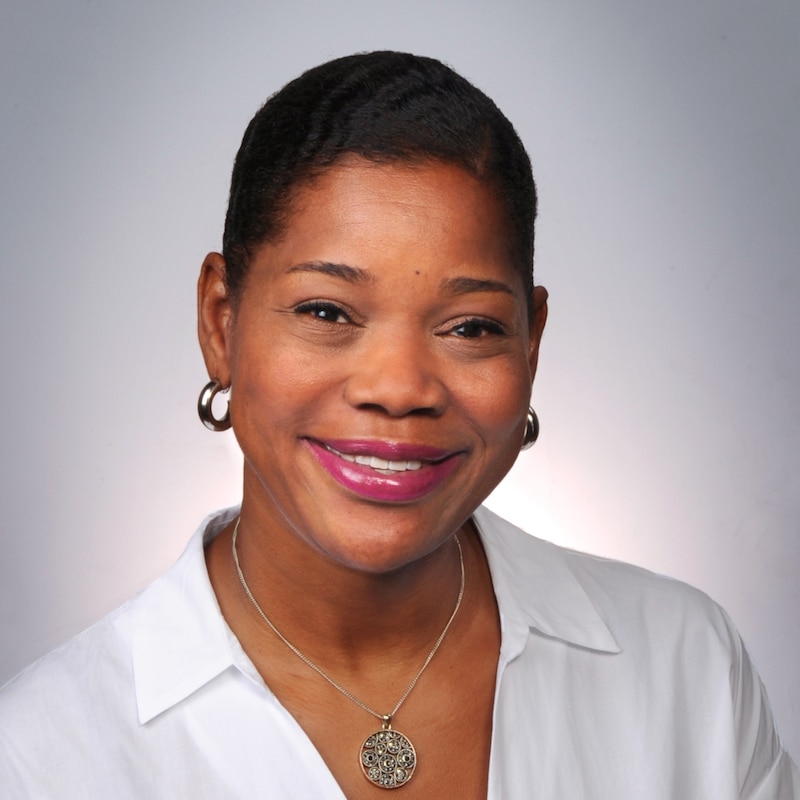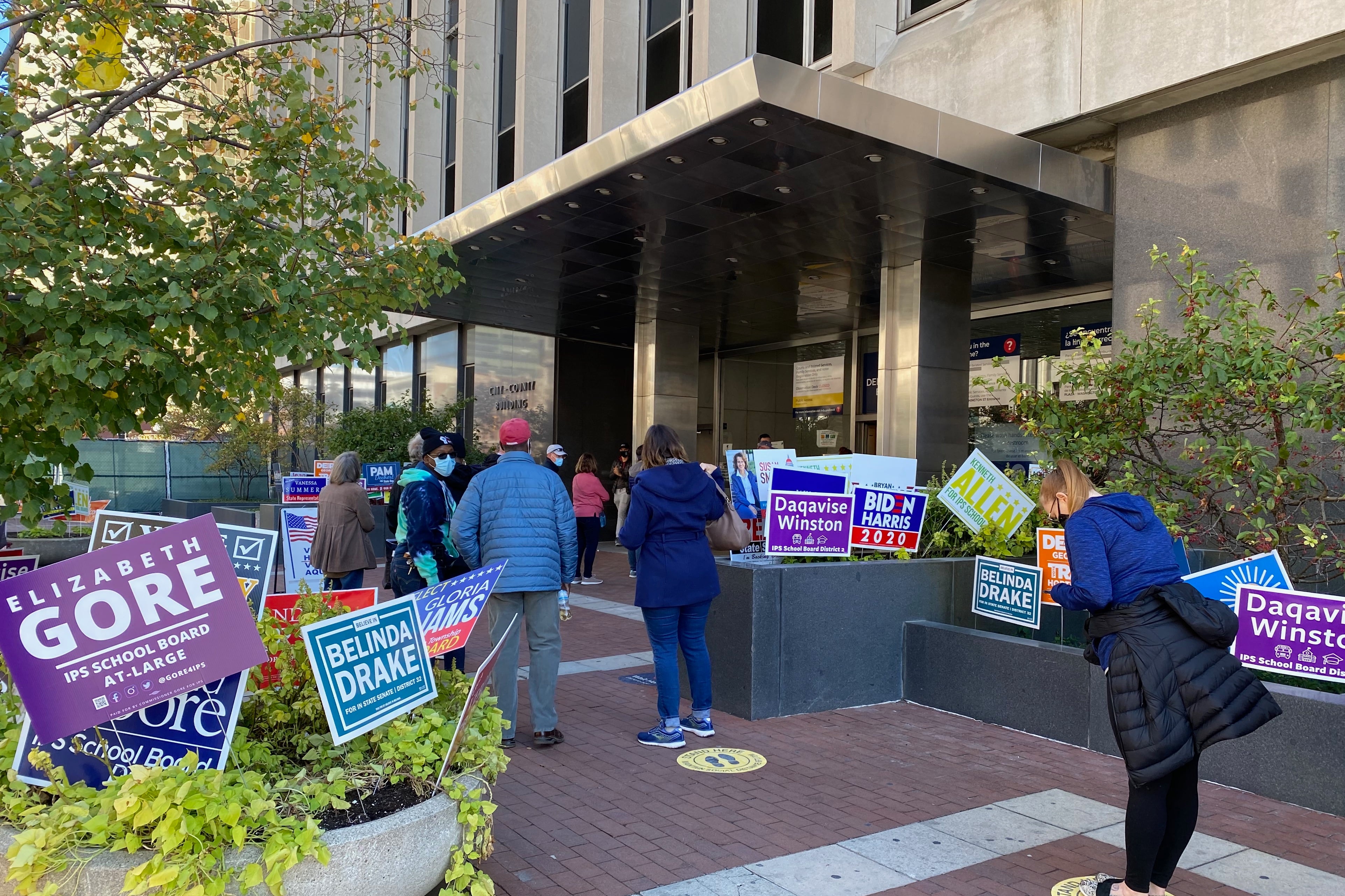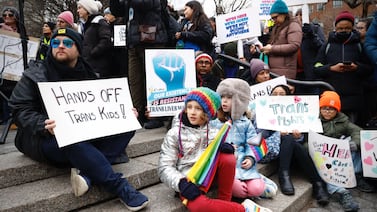The sole contested race in the Indianapolis Public Schools board elections will leave District 3 voters choosing between two IPS parents who have spent time working or volunteering in schools and have significant concerns about the district’s revitalization plan.
Hope Hampton and Kristen Phair will face off in the Nov. 8 election to represent the district, which encompasses rapidly changing neighborhoods in midtown Indianapolis, including Mapleton-Fall Creek, parts of Martindale-Brightwood, Butler-Tarkington, and Broad Ripple.
The winner could help oversee the rollout of the district’s Rebuilding Stronger proposal, a major overhaul unveiled last month that would consolidate some schools, close others, and reconfigure grades throughout the district. The current board could vote on the plan as soon as next month, before the newly constituted board is sworn in. But during an Oct. 5 candidate forum co-hosted by Chalkbeat Indiana and WFYI, both Hampton and Phair said they would vote against it.
Incumbent Evan Hawkins, the current board president, is not seeking reelection after serving one term.
District 3 includes a diverse population, from the mostly white area of Meridian-Kessler to the neighboring Fairgrounds area, where nearly half of the residents are people of color, according to 2019 Indy Vitals statistics. Poverty rates vary widely across the district as well.
The district includes about a dozen schools, including two Center for Inquiry schools, the district’s two Butler lab schools, and the Sidener Academy for High Ability Students.
Rebuilding Stronger calls for a number of changes in District 3, including the closure of Floro Torrence School 83, the merger of Francis Parker Montessori School 56 with James Russell Lowell School 51, and the relocation of Sidener Academy to the former site of School 56.
Candidates stress partnerships, teacher appreciation
Phair, a mother of three students who attend George Washington Carver Montessori School 87, is a former deputy state public defender who later began substitute teaching and volunteering at School 87 after the pandemic started.
That’s when her appreciation for teachers grew — a theme she frequently stressed in public candidate forums held in October.

“We’re in dire straits for qualified teachers, and my fear is if our solution to that is fast-tracking credentialing, it’s going to be a race to the bottom for our kids,” Phair said at the Oct. 5 candidate forum. “So it’s imperative that we retain and recruit qualified teachers and get them in the classrooms and keep them there.”
Hampton, who has a son at Shortridge High School, has a degree in social work and is now a small business owner, but has worked as a counselor at the KIPP Indy charter school network and as a dean at North Central High School in Washington Township.
She also previously worked for the Association for Loan Free Education, a group that helped students attend college — the same organization that helped her receive a higher education as a first-generation college student.

Hampton has stressed community partnerships as a potential solution for a number of challenges, from securing philanthropic funding to recruiting more teachers of color.
“There are organizations who do great work in helping to recruit, helping to retain Black and brown teachers, and we need a relationship with them and not assume that the district can do that by themselves,” Hampton said at another candidate forum hosted by KIPP Indy, the Edna Martin Christian Center, and the nonprofit RISE Indy on Oct. 6. “It’s not as simple as saying, ‘We have openings.’”
Why they oppose Rebuilding Stronger
Both Hampton and Phair said the district needs more community input from parents and teachers regarding the Rebuilding Stronger plan.
The plan, which is meant to address issues of equity and the financial troubles associated with declining enrollment, expands access to Center for Inquiry and Montessori schools, among other school models. Those high-demand programs have shown some of the highest academic outcomes, according to the district.
But Hampton has expressed concern about the replication of such programs, arguing that there is “no proof” that those models close learning disparities between white students and students of color.
Phair said she would like the district to study whether the proposed changes are best for each school community.
“I don’t believe it’s a one-size-fits-all approach,” she said of academic models the district could expand. “So a replication must be done with integrity.”
Stance on innovation schools, fixing budget
Phair said she would like to see a pause on the proliferation of innovation charter schools while the district focuses on the Rebuilding Stronger plan.
But Hampton said that making blanket proclamations about any schooling model does a disservice to families.
“Many innovation schools are closing the gap for students and families and increasing the number of students that graduate and pursue a college degree,” Hampton said in an email. “That’s important.”
Hampton and Phair have different solutions for fixing the district’s impending budget crisis.
Phair has pushed for assertive lobbying at the state level so that IPS receives more funding.
“We must also find ways to capitalize on the resources we have,” Phair wrote in a Chalkbeat Indiana and WFYI candidate survey. “The state has prevented IPS from selling unused buildings for market value which, in turn, prevents our district from utilizing these assets for the betterment of our schools.”
Hampton has called for more transparency and accountability in district finances.
“In order to address the [predicted] deficit, it is critical that the district closely examines the ways in which it invests its resources and leverages its partners, including philanthropic funding,” Hampton wrote in her survey response.
Advocacy groups’ endorsement draws attention
Stand for Children Indiana and RISE Indy, two groups that have embraced charter schools in IPS, have endorsed Hampton. She noted that those groups work to represent families of color, helping them better understand and advocate for what they need.
In the Oct. 5 forum, she recalled how the Association for Loan Free Education helped her own family and guided her into college.
“If it were not for them mobilizing and supporting my parents and bringing them to the table, teaching them how to get me to college, I wouldn’t be sitting here today,” Hampton said.
Phair, however, has questioned the out-of-state money that helps fund those groups. She said that she is seeking an endorsement from the teachers union, which in the past has funded candidates running against those supported by groups such as RISE and Stand.
“I think the big question is: Why are wealthy, out-of-state donors interested in a local school board race?” she said at the Oct. 5 forum. “People invest in things to see a return, and I’m afraid that wealthy out-of-state donors see our education system as an opportunity for profit.”
Hampton said she has reached out to the teacher’s union to ask about their endorsement process.
The election is Nov. 8. Early voting began Oct. 12 and ends Nov. 7.
Amelia Pak-Harvey covers Indianapolis and Marion County schools for Chalkbeat Indiana. Contact Amelia at apak-harvey@chalkbeat.org.







